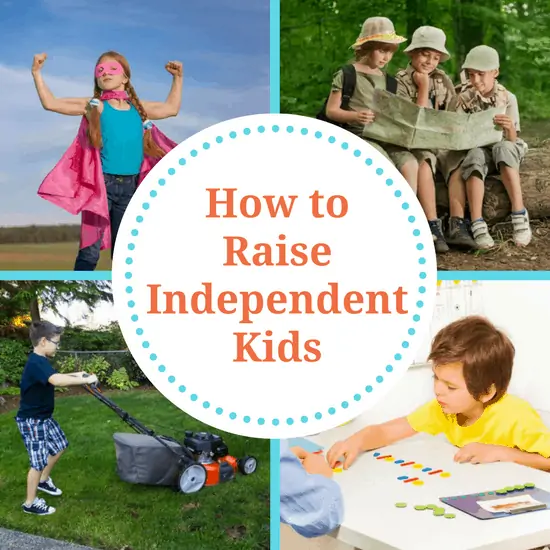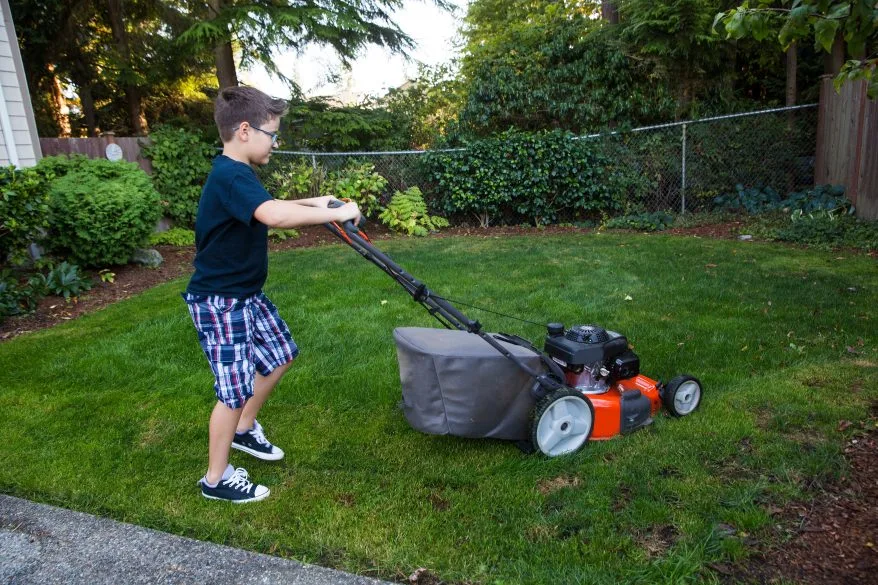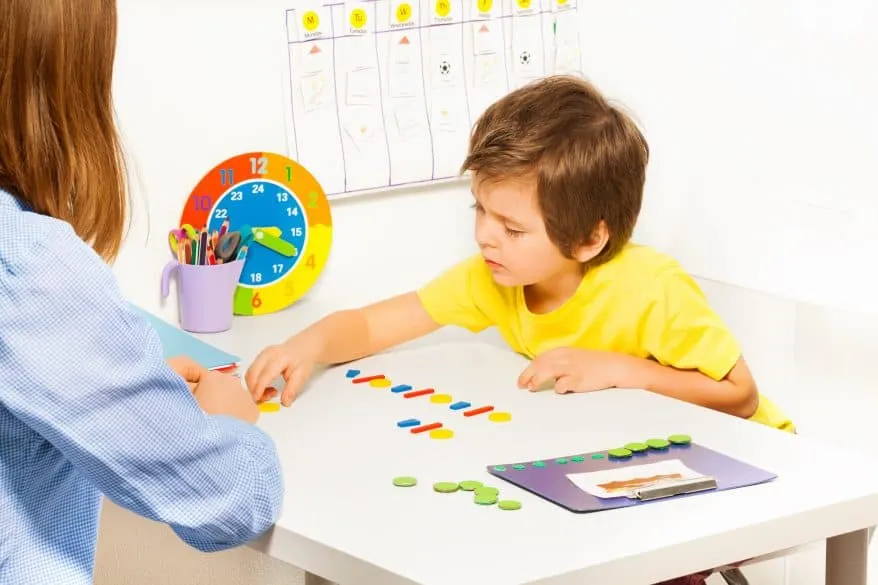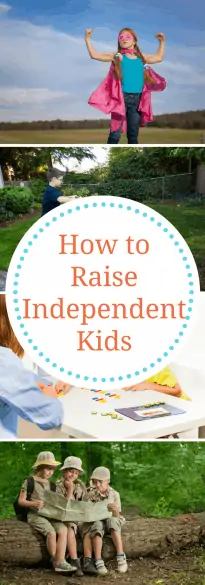
Teaching your children to become independent is a task many parents face with mixed feelings. As babies, our kids depend on us for virtually everything they need to grow and thrive from love and safety to nourishment and mobility. Watching children grow is a beautiful thing. But it can also leave an ache behind as they grow more independent from you as their parent and caretaker. However much we mourn the loss of the total dependence of early childhood, we also celebrate the milestones of kids growing up and becoming their own person. Your child’s growing independence is a natural part of the progression towards a healthy and productive adulthood. And although this progression is necessary, it isn’t going to happen completely on its own. Here’s what I have learned about how to raise independent kids.
How to Raise Independent Kids
1. Help Your Child Build Self-Confidence
An important part of raising independent kids is helping them develop self-confidence. A self-confident child doesn’t rely on their parents or their peers to make decisions. And they have the self-assurance to move through the world on their own. Feeling confident in their own capabilities and secure within themselves will help your child become a successful and happy, independent adult.
You can help nurture your child’s self-confidence by encouraging their interests and hobbies. And helping them develop their natural abilities.
Asking your child for help is a great way to help them feel more confident. And it can also help teach some basic adulting skills. This can include household chores, but also helping to cook dinner or even planning a family trip.
Show your child you respect their opinions and feelings by talking and listening when you have a disagreement or an important issue to discuss.
Praise is also a great way to build confidence. But empty praise tends to have the opposite effect of teaching independence. And too much empty praise can teach kids to base their self-esteem on receiving praise itself. Make sure your compliments are sincere and specific. More than just a generic “good job”. Mention the specific things your child does that stand out to you and make you proud.
2. Teach Responsibility
You can start teaching your kids responsibility from a very young age. Older toddlers can be taught to pick up their toys. Preschoolers and grade schoolers can learn to clear the table after a meal, make their bed, and help mom and dad with household chores. And the responsibilities should increase as your kids grow. Teaching responsibility is an important step in raising independent kids. An important part of independence is taking responsibility for yourself.
Healthy functioning independent adults do their own cooking, cleaning, laundry, money management and self-care. You can’t do all those things for your kids until the day they leave for college and then suddenly expect them to know how and what they should be doing. Independence is meant to be taught over the length of childhood with ever increasing adult trust and responsibility.
3. Encourage Exploration
One of the hardest parts of parenthood is learning when to let go. From the moment they’re born we want to protect our kids and keep them safe from harm. And while it may seem safest to keep them tied to our side at all times, exploration is an important part of child development.
When toddlers take their first stumbling steps away from their parents and start to explore their surroundings they begin their journey on the road to independence. Allowing kids to explore inside and outside the house is important for physical, social and emotional development.
Safety is always a concern but there is a middle ground between never letting kids leave your side and free range parenting. Consider your child’s age and maturity when deciding how best to encourage independence. Younger children require supervision for exploration. But consider if your older children can play in the yard independently. Or walk in your neighborhood safely with a friend. It can be a delicate balance between letting your kids explore and keeping safety in mind, but it is an important part of raising independent kids.
4. Teach Problem Solving Skills
I cannot emphasize enough how important problem-solving skills are for raising independent kids. I think we all know people who when they encounter a problem in life let emotion overtake reason or let indecision keep them from moving forward. These people are often dependent on others to solve their problems and find solutions for them. Learning how to problem solve will help your child succeed socially, academically, and even in their future careers. And it is an important step on their road to independent adulthood.
Problem-solving skills include the ability to evaluate a situation, consider possible solutions, and implementing the best one. It sounds simple but it is something many people struggle with, even as adults. If you want to brush up on your own problem-solving skills, even as you work on teaching them to your child, check out this list of problem-solving activities you can do as a family.
5. Let Them Make Mistakes and Live with Them
As parents, we have a responsibility to keep our kids safe from true harm. But that does not mean protecting them from failure, disappointment, sadness, fear, or regret. Your child is going to encounter difficulties in their life. And they are not always going to be successful at everything they do. Sometimes your child will make poor choices that have negative consequences for themselves. And as a parent sometimes you need to let them live with it.
Raising independent kids doesn’t mean letting things blow up in their face. Or forcing them to fend for themselves when the consequences of their actions are life-altering. But it can mean taking a step back and letting them make their own decisions on low stakes issues, even when you disagree with their choices. A parent’s job is to guide and advise, but especially as your child gets older and becomes more independent, they need to learn to take it from there.
Younger children need more guidance and need to be protected from making poor choices. But a teenager only a year or two from college or a job shouldn’t expect their parents to jump in bail them out every time they forget their homework or leave their coat on the bus. Let them exercise some of those problem-solving skills you’ve been teaching as part of their growing independence.
Independent Kids Become Independent Adults
Knowing how to raise independent kids is a struggle between balancing our protective parental instincts and helping our kids grow into the successful adults we hope they become. Just as we have to allow our kids to make mistakes as part of learning independence, we have to accept we won’t always strike the perfect balance either. But we do our best. I hope you can use these tips for how to raise independent kids to help your little ones grow into everything you know they can be.





